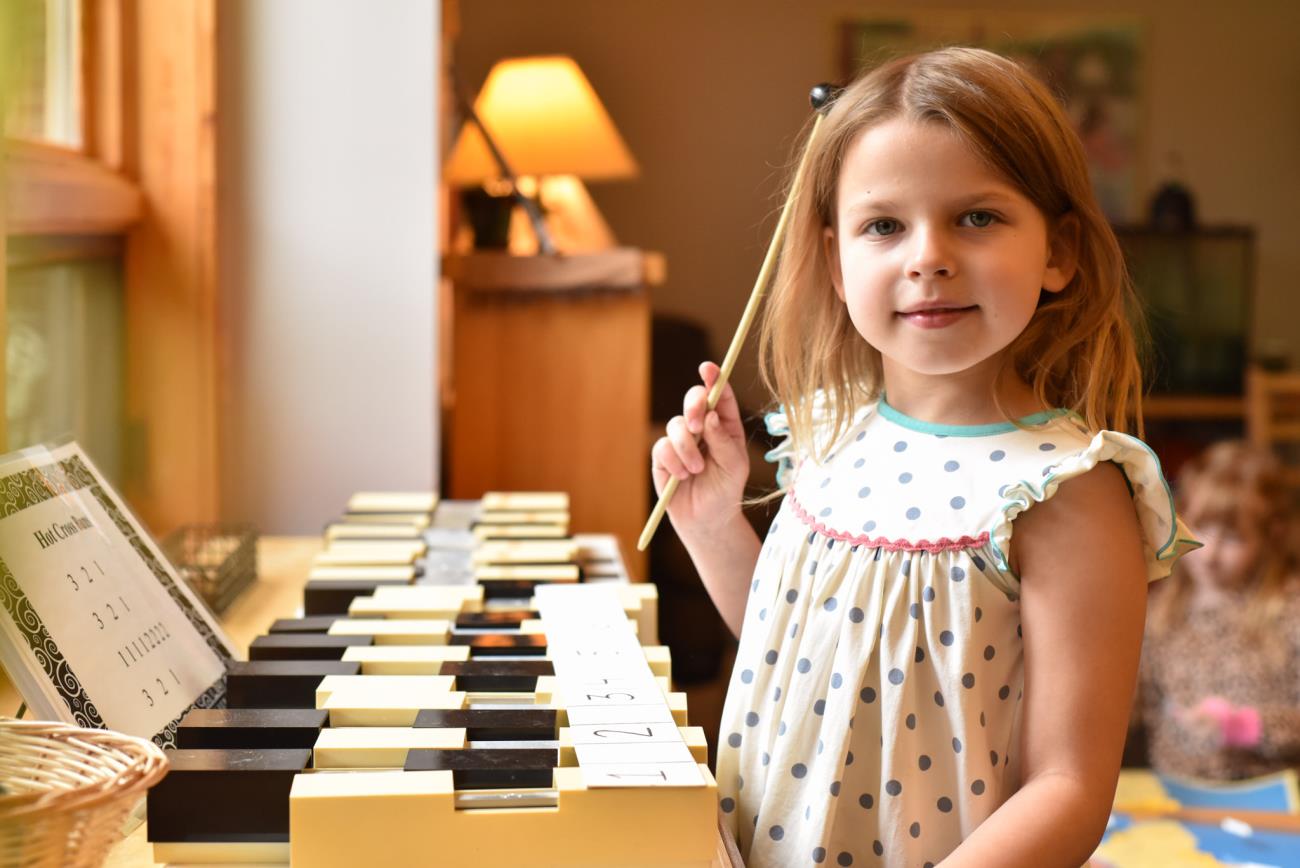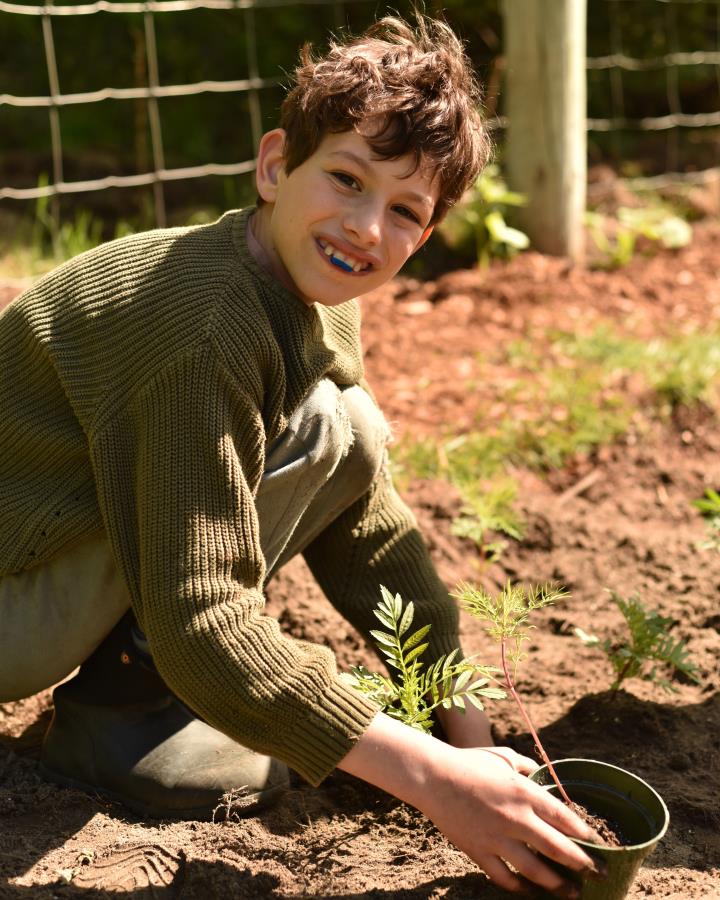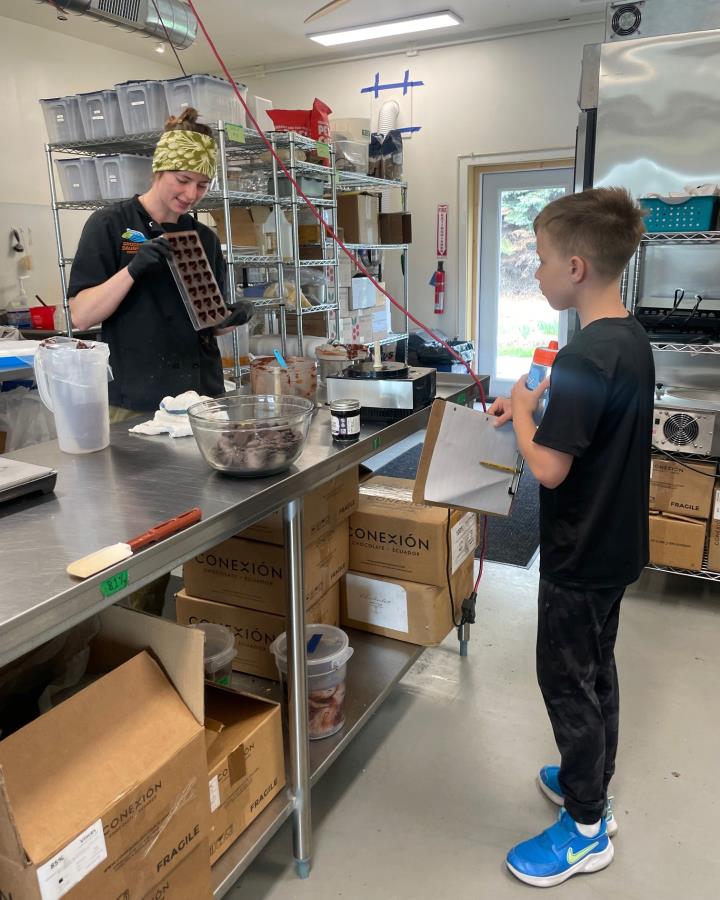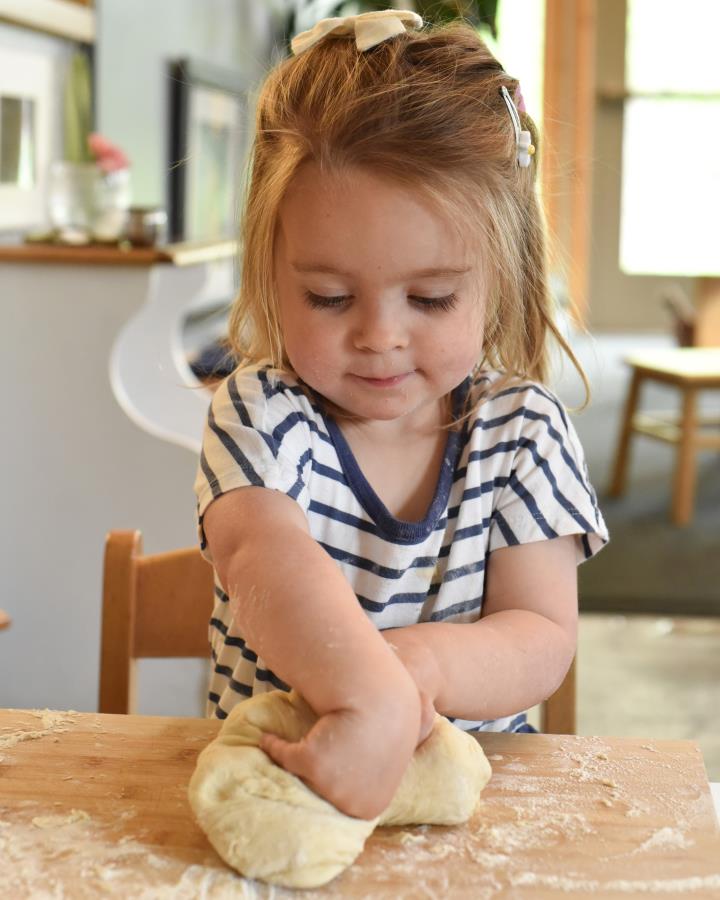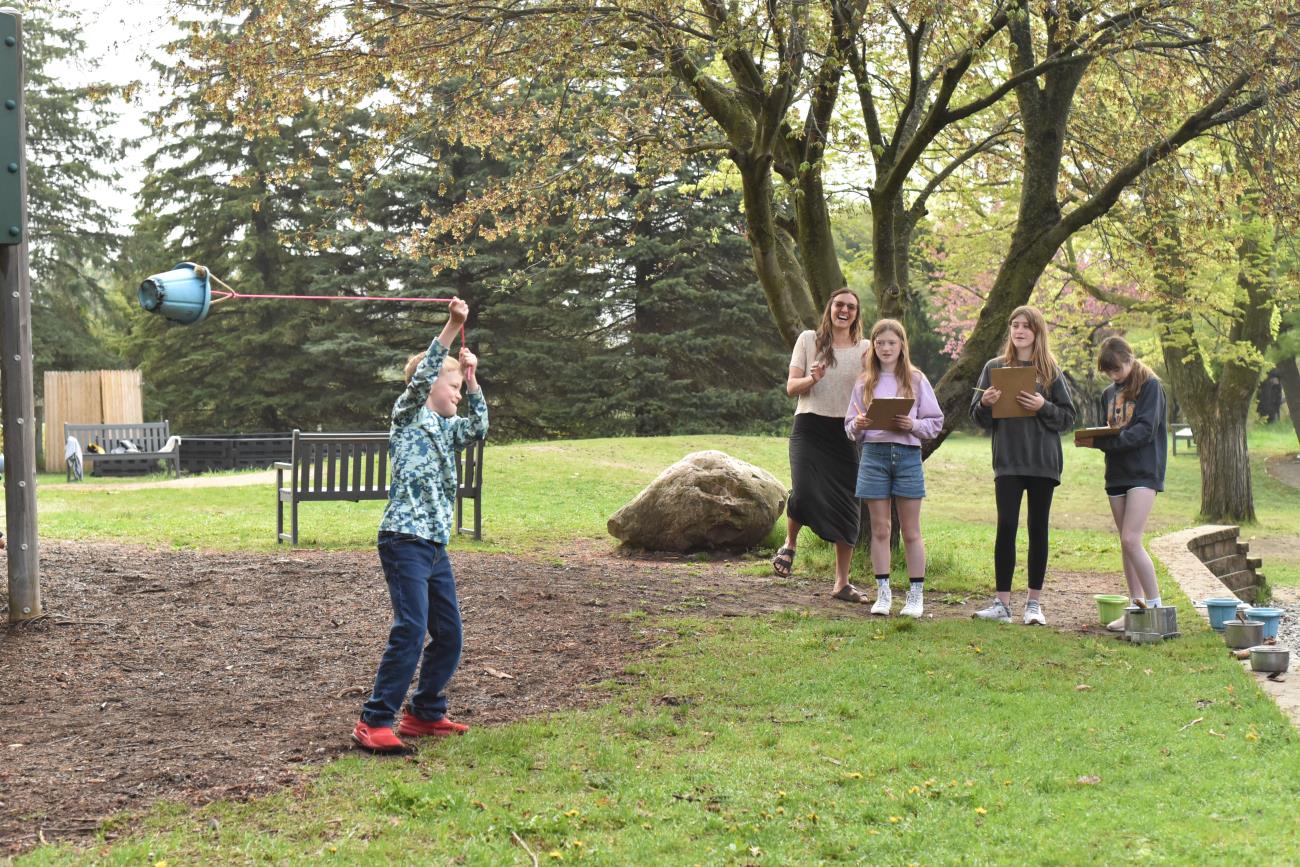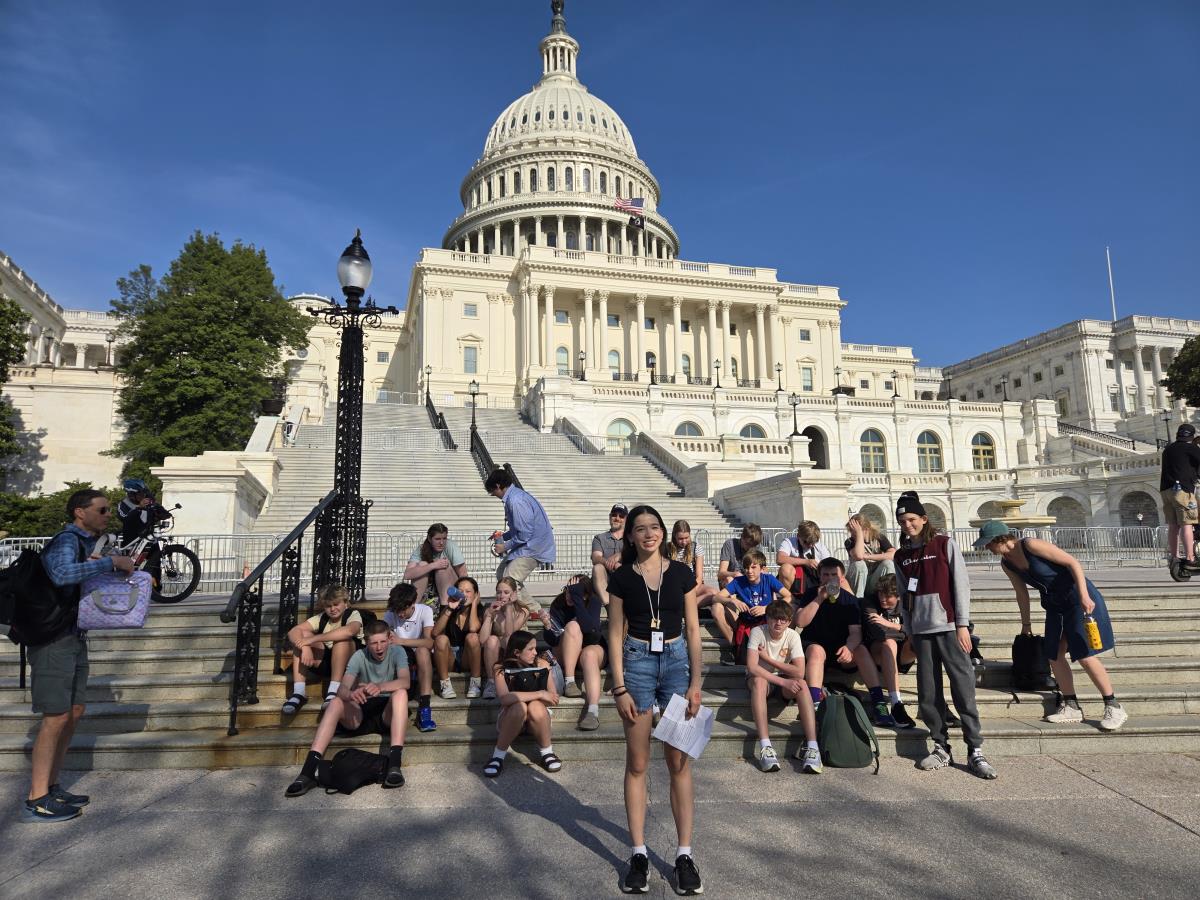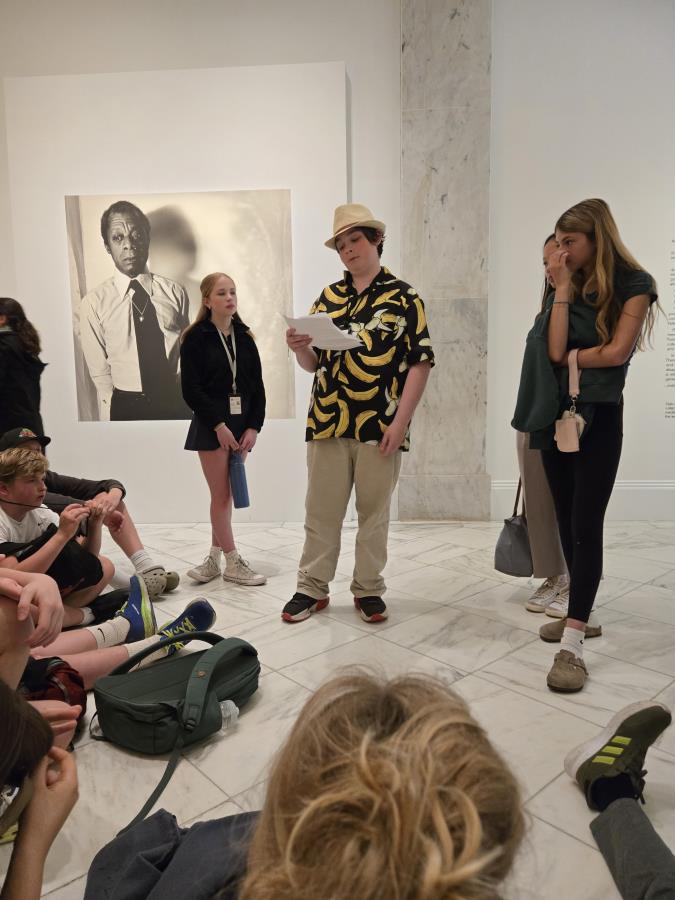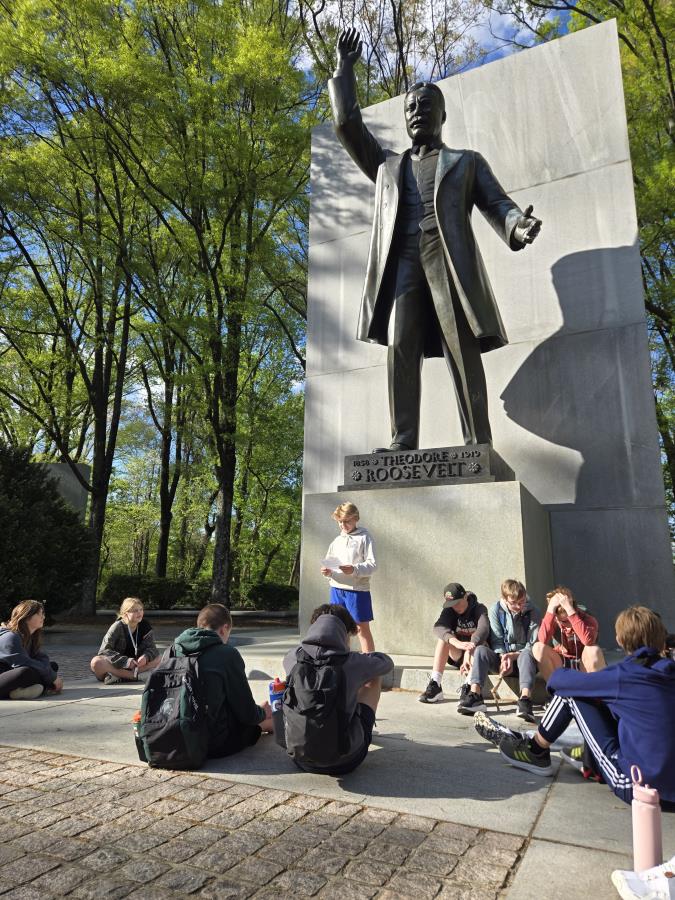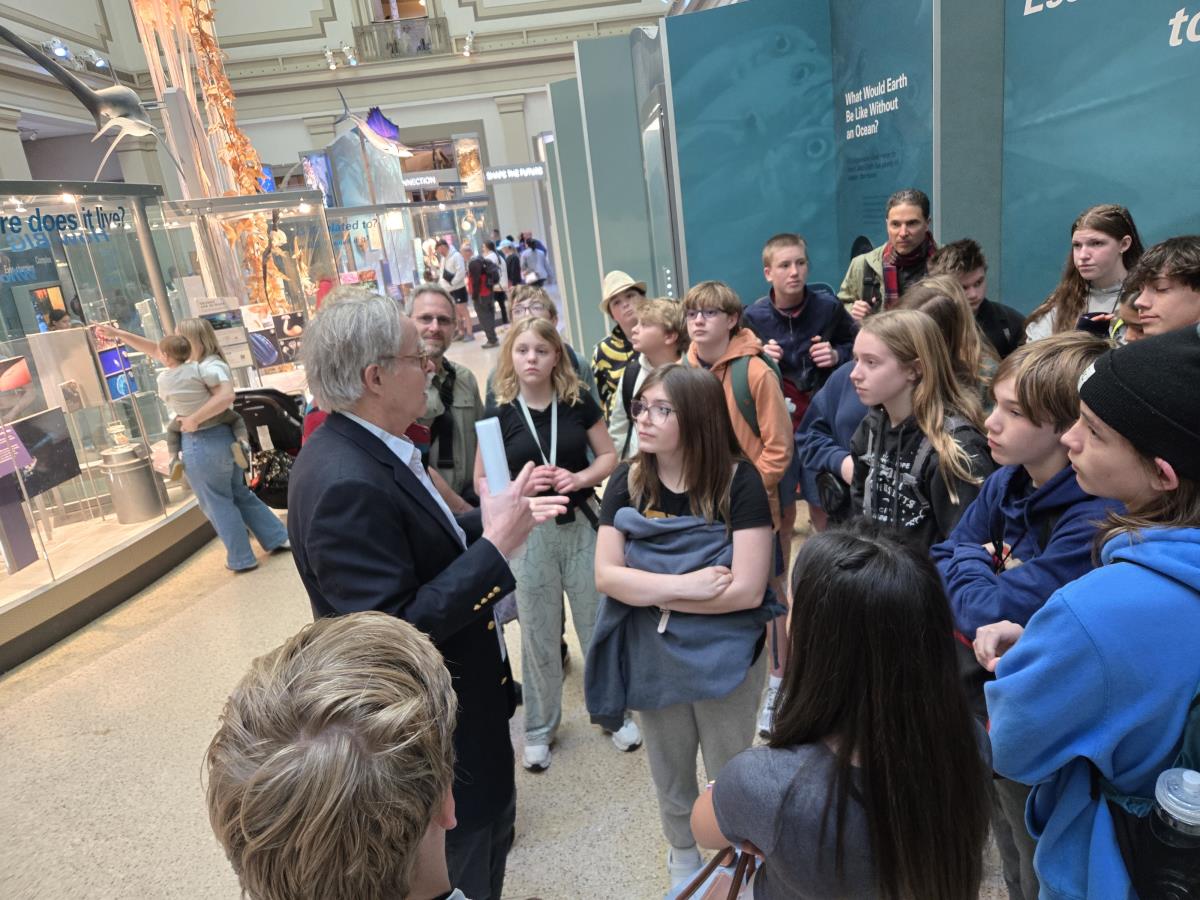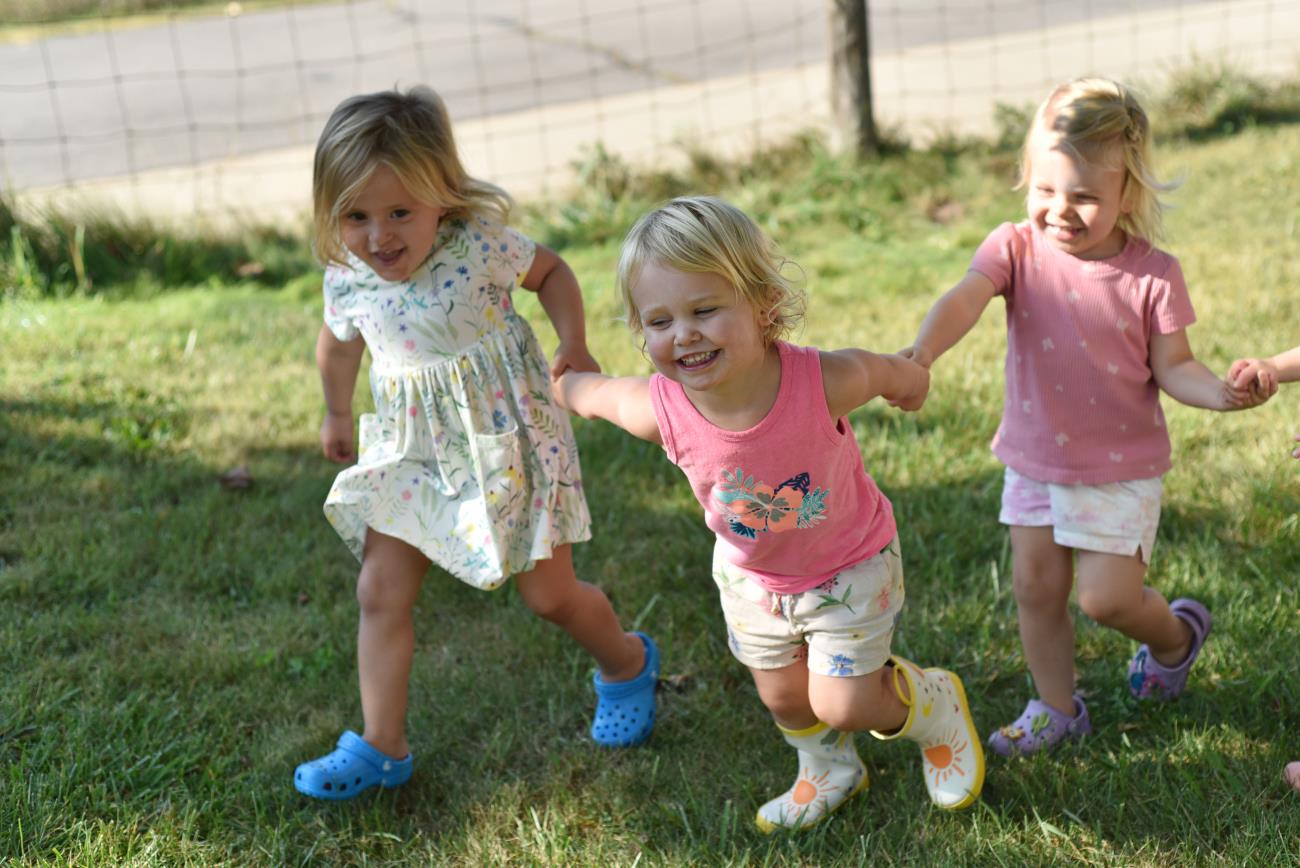In Montessori education, few ideas are as foundational—and as powerful—as interdependence. Dr. Maria Montessori spoke and wrote extensively about this concept: the idea that everything in the world is connected, not just loosely, but deeply and necessarily. Interdependence means that everyone and everything depends on everyone and everything else. Practicing this idea helps children develop skills that will support how they contribute to society and interact with humans and nature as they grow and develop.
In our elementary classrooms, we begin exploring this idea in a concrete, relatable way—through The Story of Bread, a staple food that has sustained humanity for over 10,000 years.
We introduce a material titled Where Do We Get Our Food? – the first level focused on bread. It’s a simple question with a wonderfully complex answer. The children are guided through the process of discovering the many hands, tools, natural elements, and systems required to bring a slice of bread to their plate. This is just the first step in a larger arc of lessons, followed by Meat and Cotton, continuing into lessons on What the Farmer Needs, What the Toolmaker Needs, and What the Farmer Produces.
These explorations build upon the children’s earlier work with the Fundamental Needs of Humans. This foundational work involves identifying and examining both the material needs essential for human survival and the spiritual needs that bring meaning and purpose to life, such as art, culture, and philanthropy. It also emphasizes the idea that we can truly pursue the latter only once our basic survival needs have been met.
These lessons are not just about food or farming. They are an introduction to the vast, invisible network of cooperation and community that supports even the most ordinary part of a child’s day. When a child eats toast at breakfast or a sandwich at lunch, they are participating in a long chain of interdependence involving farmers, millers, truck drivers, grocery workers, cooks, the weather, the soil, and so much more.
As children absorb this concept, they begin to understand a simple but profound truth: every living thing relies on others to thrive. This realization shapes how they see the world. It becomes the foundation for understanding migration, conflict, and what happens when people’s fundamental needs go unmet. These are not abstract ideas—children see them play out when families move, when someone asks for help, or when they feel moved to donate money or raise funds for a cause. These moments are signs that they’ve noticed a need and believe they can respond.
Montessori believed that if we taught children to understand and live by the principle of interdependence, peace would be a natural outcome. Through these stories and lessons, we hope to sow the seeds of that understanding. And in doing so, we are not only educating children—we are shaping more compassionate citizens for the future.
This summer, consider baking bread from scratch with your child. Talk about where the ingredients come from and how they reach your kitchen. Or visit a local bakery and ask the baker, “How many people helped make this bread?” Let the inquiry stretch back to the farmer who planted the first grain seed.
Montessori reminds us that true education nurtures both the mind and the heart. It teaches us that our greatest strength lies in our connections with each other and with the world around us. If we raise children to truly believe that we belong to one another, imagine the world they could create.
Being a Montessori Guide holds such responsibility in the care of children. Beyond providing academic lessons, we deeply understand the importance of connecting with children.
This fall, I took a class about neurodivergence in the Montessori classroom. While the instructor gave us many tools to use, she also emphasized the importance of connecting with each learner. I have always felt this importance with each child. We take this role as a teacher so seriously. We know how critical it is that we help children feel loved, supported, cared for, listened to, important, and understood.
If you’ve learned about Adverse Childhood Experiences, you know that one trusted adult can change the outcome of that child’s ability to cope, grow, and overcome. Teachers are often that extra adult that children need, and how special for children to learn that they can build a positive attachment with other adults. This supports their growth!
You all have great trust in leaving your children with us in our care every day. I feel so grateful to spend my days with children, and all of us know the great responsibility that comes with this.
I feel so lucky to have had teachers who connected deeply with me, who knew me, and who supported me when things were hard. I know the importance of this role, and I feel so happy to be this person for children now. The adults in this school take this seriously and love the connections with your children.
We notice when someone looks hurt or down, and we respond. We take the time to have discussions. We acknowledge when we make mistakes. We take the time to know our learners. We discover what matters to them, what inspires them, what lights them up, what is hard for them, and what cheers them up.
Something that feels so special in Montessori environments is that we can spend more time with your children and see their growth and celebrate it! Some of us have the privilege of spending three years with your children, what a gift! I love being a witness as children overcome challenges and truly find their voices.
For the workshop, Democratic Movements we all got a chance to choose our own topic. Our assignment was to make a five minute presentation, a research paper, and an art project. Students studied topics like women's rights, immigration rights, maternal rights, non-proliferation and labor rights. Students worked very hard on their papers and artwork but the only thing we brought to DC was our presentations. The reason for this is so we can learn more about public speaking and speaking to an audience instead of just reading off a paper. Another thing we had to get prepared for DC was a location. This gave the student a chance to work on communication skills with adults and corporations as well as working together with peers to plan our trip.
Our trip was filled with learning about topics many of us have never heard of. One of the big locations we visited was the DEA or the Drug Enforcement Administration. Eric took us here to learn about drug misuse and we learned about how much of our population is affected by this horrible disease. Another big moment from the trip was when Giuliana took us to the FBI headquarters which was amazing to see. It's crazy to think we went to the FBI headquarters on a school trip and it was definitely the highlight of the trip for most people. Here we did so many different things like watching a film about the 10 most wanted list right now. It's so weird to think how dangerous a human could be to the point they are literally offering 2 million dollars just for information. We finished off the tour by watching some of the agents do target training while we watched behind a sheet of thick glass. We had never seen anything like it and we were so lucky to be able to have seen that.
On the second night we got to learn all about the different monuments. We went on the night monument tour where we basically waited until it was dark and got to walk around DC and learn about the different monuments. Some of the monuments we saw were The Lincoln Memorial, The Washington Monument, and the World War II Memorial. We didn't get to all of them because of how late it was and how tired we were but I'm so glad we got to experience this and everything on this fun trip.
Some students were lucky enough to have gotten somebody to talk with them. Myles and Ava even got people to talk to us in a room about their topic before they began. Students gave their presentations amazingly even though there were some setbacks like having the fire alarm go off during Avas presentation or Ainsley and Evi having to present in a loud cafeteria with about a hundred people talking over them. Besides that everyone delivered beautifully and you could really see the work they put into researching their topics.
These are only the highlights of the trip so that really shows how much fun we had and how many different things we experienced. We learned so many different things in the workshop from different students. We are all so grateful to go on these trips and thankful to all of our teachers, Tree, Tori, Kristina, and Brian.
Written by Gwennie Goodreau and Ava Hagerty
Photography by Olivia Mittelstaedt
Toddlers are my favorite people for many reasons, but one quality of The Young Child that I absolutely treasure is their ability to be completely present. Life moves awfully fast, and I often find myself thinking about the next thing on my To Do List in an attempt to keep up. What will I make for dinner? How many loads of laundry do I have waiting for me at home? When was the last time I called my brother? Toddlers aren’t thinking about what is next to come, they are scrubbing the easel, arranging flowers, setting the table, solely focused on the specific task in front of them. We have something to learn from this way of being.
The first snowfall of the year is not just another day for your toddler, as they likely have no recollection of the white, fluffy stuff. Buds on the trees are exciting and new. Warm, sunny weather means we get to take our shoes off in the sandbox. Piles of leaves are so much fun to jump into. While each season brings exciting new aspects to embrace, there are sometimes challenges that arise as a result of your child’s ever-present state of mind. Just because you tell your child they no longer need to wear their hat and mittens outside, doesn’t mean that they will take your word for it. They are experiencing these changes in real time and often need to feel things out for themselves. With that said, try your best to be patient when your two-year-old insists on wearing their winter jacket on a 75-degree day. They will likely only keep it on for a few minutes before realizing they are hot and stripping down a layer. This “need” to wear a jacket may span several days or even weeks before your child mentally catches up with the new season. Your patience may also be tested during the transition from summer to fall, as your child may refuse to wear the things they need to be comfortable in the cold. Again, try to give your child the space they need to come to this conclusion on their own.
I make an effort to tap into the toddler mindset with each season, embracing what is unique to the different phases of the year. I encourage you to do the same. There is so much beauty when you see things through the eyes of a child. Here’s to a beautiful spring and all the seasons of life to come!
